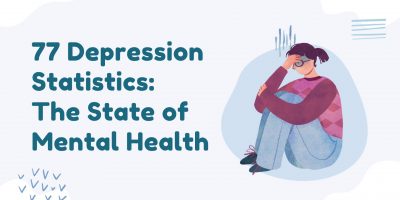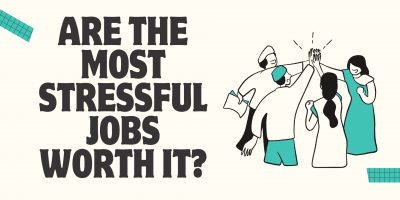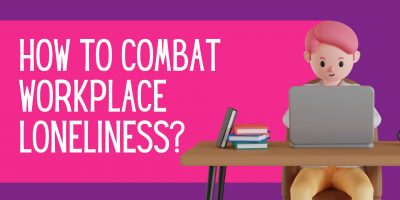
The State of Mental Health
Gain a comprehensive understanding of current trends, challenges, and innovative approaches to support mental well-being in today’s fast-paced work environments.

Millions of Americans are impacted by substance use disorder (SUD) each year. As a journey that proves most effective in supportive environments, navigating it becomes a shared responsibility between individuals, governments, and the workplace.
In response to what seems to be a growing challenge, the Recovery Friendly Workplaces Institute (RFW), established by the Global Recovery Initiatives Foundation (GRI) with the support of the White House, helps companies become a significant support system for SUD-recovering employees.
As part of this initiative, GoMo Health was recognized as one of the first recovery-friendly workplaces thanks to implantation of its very own Recovery Pathways: Workplace digital engagement solution created for employers, unions, and employees.
This program sets the path for companies who want to get involved and effectively support their employees on the journey to addiction recovery.
Recovery Pathways: Workplace™ is an AI-driven innovative solution that uses behavioral science to support employees and employers impacted by SUD.
The program provides personalized, timely assistance for those in treatment or recovery (at work and home), training and education for supervisors, and support for families of employees with substance use challenges.
This holistic approach ensures that everyone in and out of the workplace receives the appropriate support, promotes awareness and open conversations, and in turn, creates recovery-ready workplaces.
GoMo Health has implemented the program with its own employees, and has become one of the first to become a certified recovery-friendly workplace due to the effectiveness of the digital engagement solution.
The Global Recovery Initiatives Foundation, previously Sobriety High Foundation, has led SUD recovery for over twenty years. It connects leaders from different sectors – including research, government, and nonprofit organizations – to enhance their SUD recovery efforts, resources, and awareness.
Following the 2022 White House National Drug Control Strategy, which identified recovery support as key to addressing SUD, the GRI created and launched the National Recovery Friendly Workplace Institute.
Since then, the institute has become a valuable resource for promoting recovery-friendly workplaces and has started implementing certification programs for large employers.
In light of National Recovery Month, on September 18, 2024, the White House hosted a roundtable of employers emphasizing their critical role in supporting individuals recovering from substance use disorder.
These were among the first to get certified as recovery-friendly workplaces.
“A recovery-friendly workplace is a place of work in which the employer, in collaboration with employees, establishes, maintains, and continually enhances policies, practices, and a culture and work environment that are supportive of current and prospective employees in recovery form, or otherwise affected by substance use disorder.”
– Recovery Friendly Workplace Definition and 2024 National Certification Standards
In 2024, the RFW Institute finalized its certification program in consultation with the White House and started recruiting early adopter employers.
Based on their guidelines, eligible employers are those who are multistate or multinational and meet specific standards across four categories:
Employers must score 40 points or higher across these categories to achieve certification.
According to addiction recovery statistics, the number of individuals who are recovering from an SUD goes as high as 22.3 million, or 9% of the adult U.S. population. What’s even more concerning is that the use of certain substances continues to rise, leading to an addiction crisis.
In the workplace, addressing substance use early and effectively creates a healthier, stigma-free environment that leads to more engaged and productive employees and lower turnover.
In support of this, RFW’s benefits further expand to better communication, employee satisfaction, morale, and loyalty, as well as improved community connection and customer loyalty.
At the same time, becoming a recovery-friendly workplace decreases absenteeism and presenteeism, minimizes workplace injuries and incidents, and lowers health care, disability, and workers’ compensation expenses.
With its Recovery Pathways: Workplace, GoMo Health introduces an effective solution that addresses the widespread needs of employers and employees. With the implemention of this program, organization’s can become a certified RFW.
“We are proud to be partnering with the Global Recovery Initiatives Foundation, home of the Institute, and working with the White House to help build a more recovery-ready nation,” says Bob Gold, CEO and Chief Behavioral Technologist of GoMo Health.
Their program manages the impacts of substance use disorders through early intervention, prevention and support, personalized mobile assistance throughout the entire process, and tools for creating a safe and stigma-free environment.
“Our mission has always been to provide a whole-person approach to recovery and empower each person affected to rebuild lives of purpose and hope.
With the support of these organizations, we can reach even more Americans to further this mission,” emphasizes Gold.
Introducing support and tools like GoMo Health’s Recovery Pathways: Workplace is an ideal first step in becoming a recovery-friendly workplace.
For those looking to take this a step further, the RFW Institute encourages organizations with operations in multiple states and over 500 employees to apply for certification by contacting certification@rfwinst.org.
Senior Content Writer at Shortlister
Browse our curated list of vendors to find the best solution for your needs.
Subscribe to our newsletter for the latest trends, expert tips, and workplace insights!

Gain a comprehensive understanding of current trends, challenges, and innovative approaches to support mental well-being in today’s fast-paced work environments.

Gain valuable knowledge on the prevalence, demographics, and impact of depression, providing a deeper understanding of the challenges faced in today’s society.

Is a high-earning job worth it if you don’t have enough free time to enjoy its benefits?

Loneliness can be a serious problem affecting not only employees’ mental health but also the bottom line for businesses. What are the tell-tale signs of workplace loneliness, and what can employers and organizations do to reduce or mitigate it?
Used by most of the top employee benefits consultants in the US, Shortlister is where you can find, research and select HR and benefits vendors for your clients.
Shortlister helps you reach your ideal prospects. Claim your free account to control your message and receive employer, consultant and health plan leads.